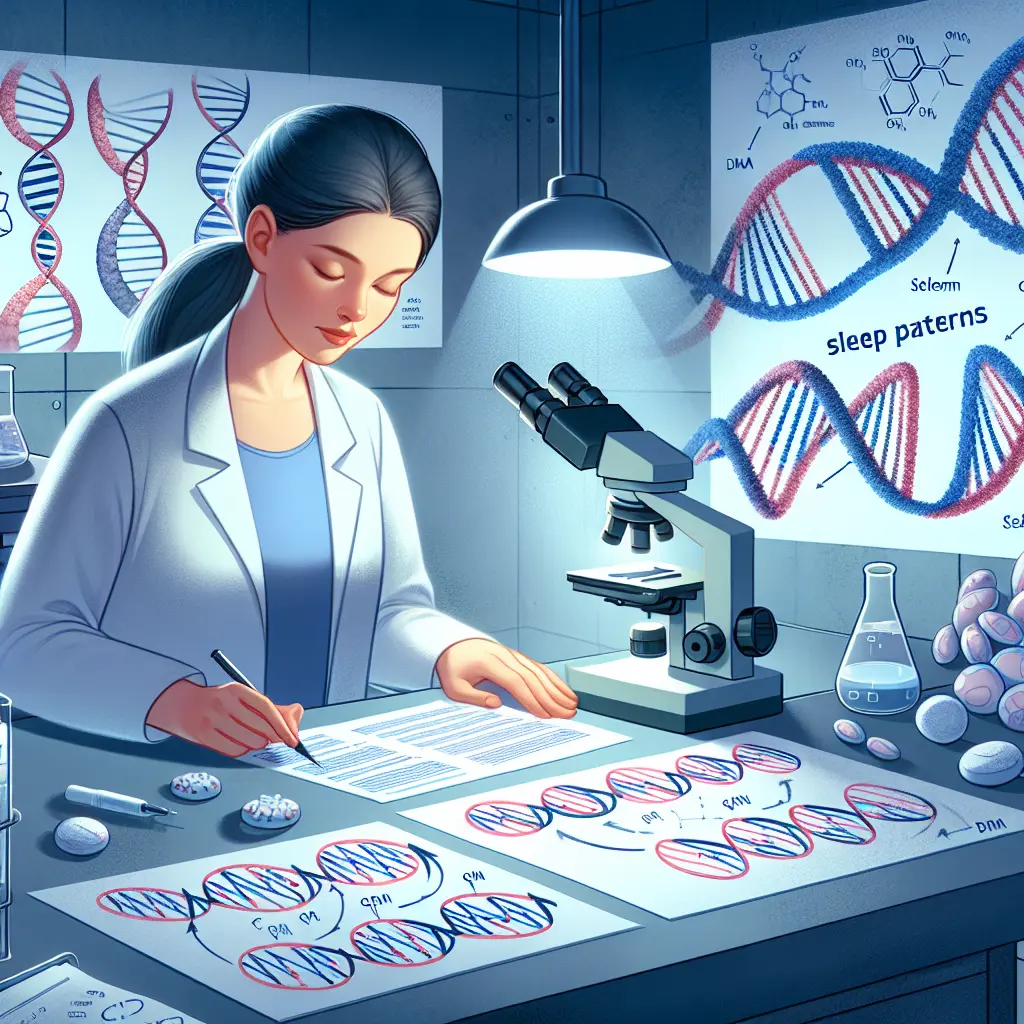
Understanding the complex interplay between our genetics and sleep patterns is an evolving field, shedding light on why some of us are night owls and others are early birds, or why certain individuals struggle with sleep disorders. The burgeoning field of sleep genetics research provides fascinating insights into how our DNA influences sleep behavior, potentially transforming how we approach sleep hygiene and health.
The Genetic Blueprint of Sleep
Research has consistently highlighted the role of genetics in sleep. Genetic factors influence the quality, duration, and timing of our sleep, with numerous studies identifying specific genes associated with sleep disorders. For instance, familial studies on narcolepsy have demonstrated a strong genetic link, particularly related to certain human leukocyte antigens (HLAs) which play a critical role in the immune system.
Further, molecular genetics sleep regulation studies delve into how various genes regulate the biological processes that govern our circadian rhythms — the natural cycles that tell our bodies when to sleep, wake, and eat. This research is crucial as disruptions in these cycles can lead to serious health issues.
Hereditary Patterns and DNA’s Role
Sleep patterns can often be hereditary, as seen in families where traits like insomnia or being an early riser are common across generations. This hereditary nature points to a significant genetic influence on sleep. Current genetic sleep studies leverage technologies like genome-wide association studies (GWAS) to identify specific genetic variants linked to sleep traits.
Moreover, understanding DNA and sleep behavior extends beyond identifying genetic variants. It encompasses studying how these genes interact with environmental factors, such as stress or exposure to light, which can profoundly impact sleep quality.
The Link Between Sleep Disorders and Genetics
Sleep disorders often have a genetic component. For instance, research has identified specific genetic mutations associated with abnormal sleep behaviors like sleepwalking or severe insomnia. This recognition of a sleep disorders genetic link opens new avenues for targeted therapies that could mitigate these issues at a molecular level.
Recent Insights from Sleep Genetics Research
Recent advancements in the field have highlighted how intricate the relationship between our genetics and sleep truly is. For example, studies now suggest that there might be genetic reasons behind why some people seem to function well on very little sleep, while others require a solid eight hours.
Further, the diversity in sleep patterns across different populations can also be attributed to genetic variations, offering potential explanations for geographical differences in sleep characteristics observed in various studies.
Connecting Broader Scientific Discoveries
While exploring the intersection of genetics and sleep, it's intriguing to consider broader scientific findings. For instance, recent studies suggesting that even cats can mourn reveal the depth of emotional and behavioral complexities in animals, hinting at underlying genetic components that could also influence sleep behaviors across species.
Additionally, insights into how the brain manages waste cleanup, as reported in recent neuroscience research, indirectly support the critical role of sleep in maintaining brain health, possibly moderated by genetic factors.
Implications for Personal Health and Lifestyle
Understanding the genetic underpinnings of sleep doesn't just reshape scientific narratives but also personal health strategies. For example, Olympic sprinter Gabby Thomas, who clinched gold in the 200-meter race, attributes part of her success to a disciplined routine that includes ample sleep — a reminder of how personalized approaches to sleep can be crucial in achieving one’s best performance.
Similarly, advice from fitness experts like Ryan Reynolds' personal trainer, who emphasizes the importance of rest alongside exercise, underscores the role of good sleep in long-term health and longevity.
Future Directions
As we continue to unravel the complexities of how genetics impact our sleep patterns, the potential for personalized medicine becomes increasingly apparent. Imagine a future where instead of reaching for generic sleeping pills, one could use targeted therapies based on their genetic makeup to address specific sleep issues.
Conclusion
The exploration of genetics and sleep patterns is more than an academic pursuit; it's a journey towards understanding one of the most fundamental aspects of our health and well-being. As research progresses, we may find ourselves equipped with more nuanced strategies to enhance our sleep quality based on our unique genetic profiles.
In closing, remember that while we are still piecing together this complex genetic puzzle, each discovery brings us closer to the day when we can truly say good night knowing we are doing the best for our bodies based on our genetic blueprint.
Until next time, dream big and sleep well!
Lucas Gregory